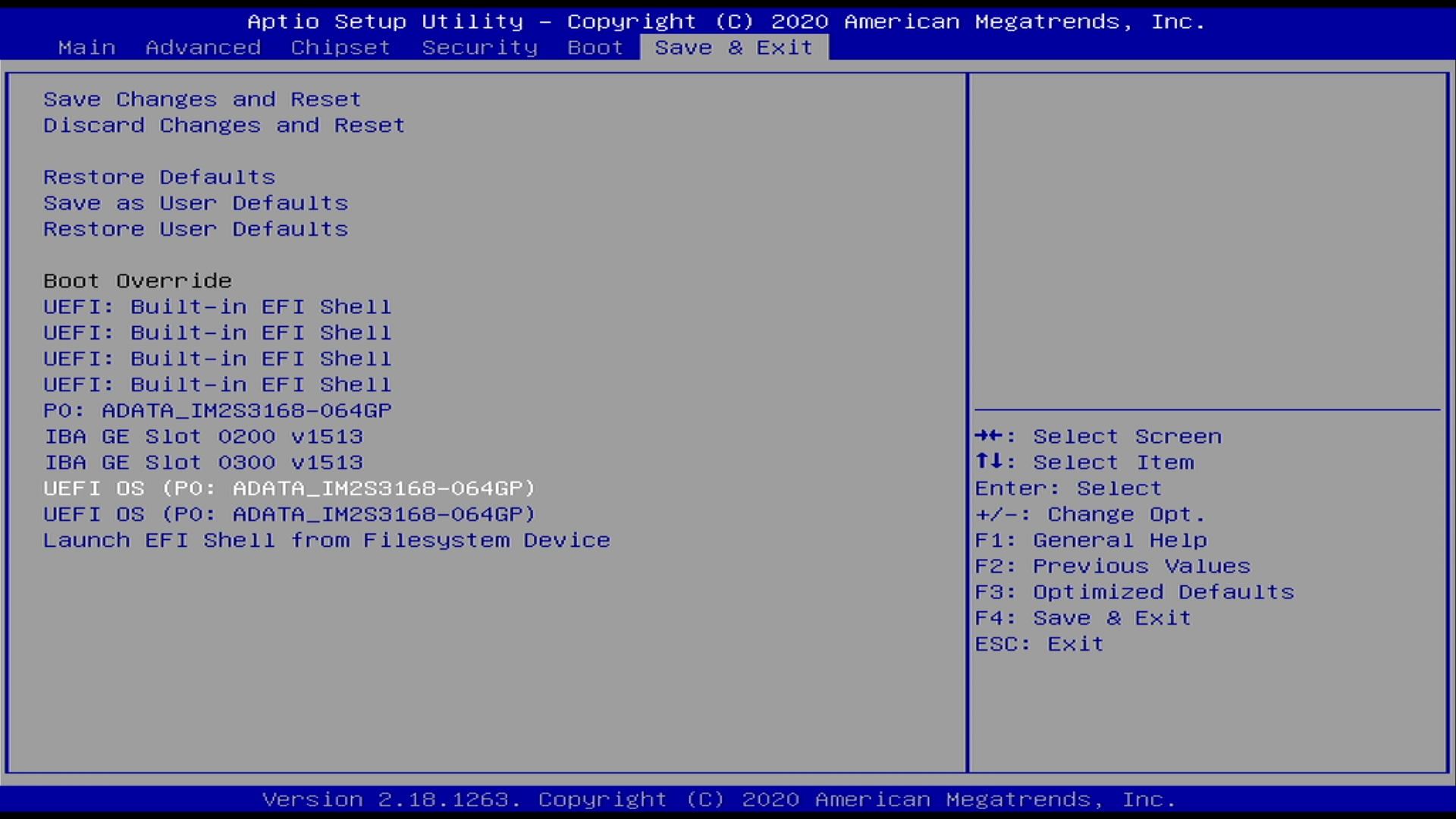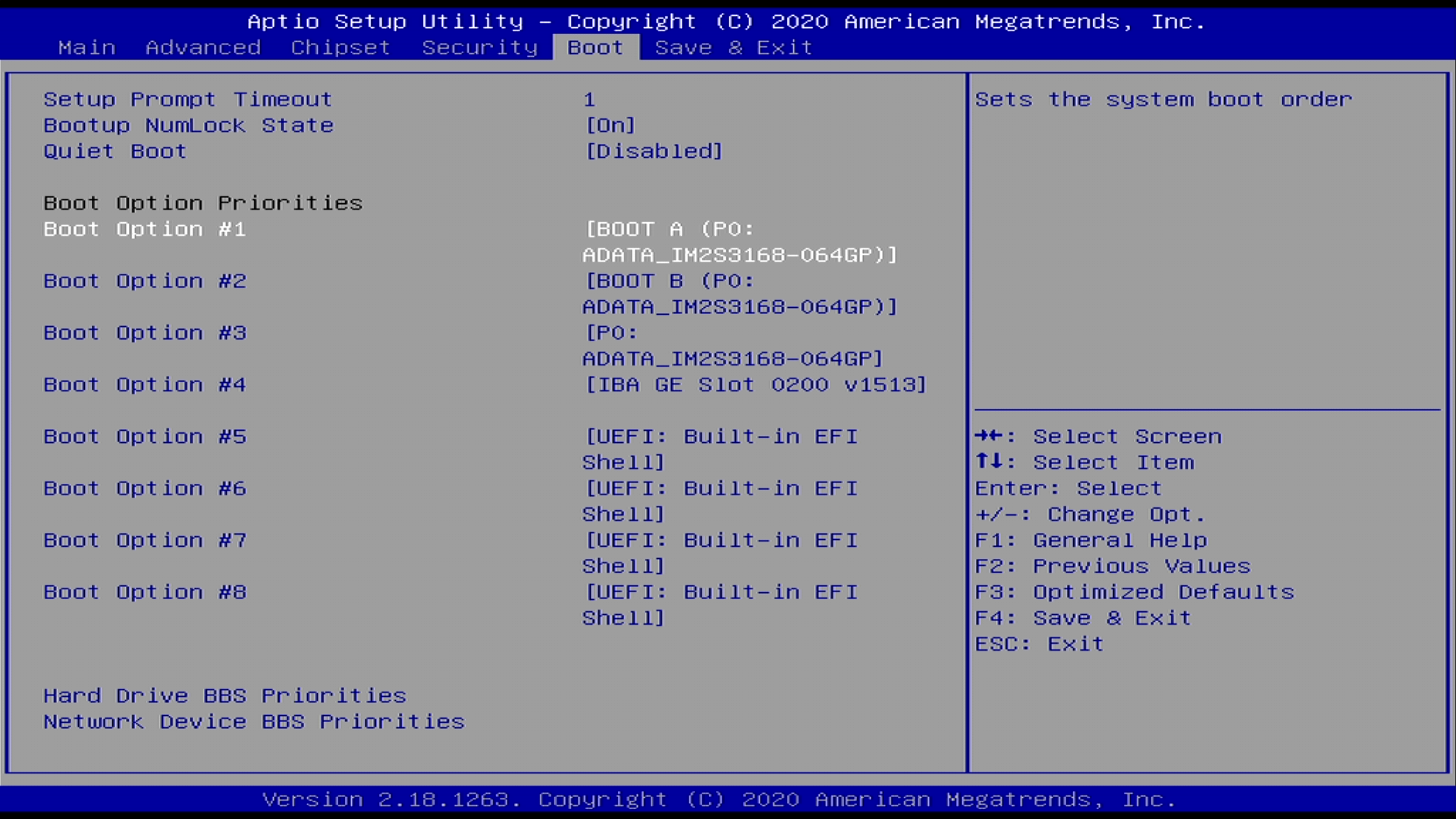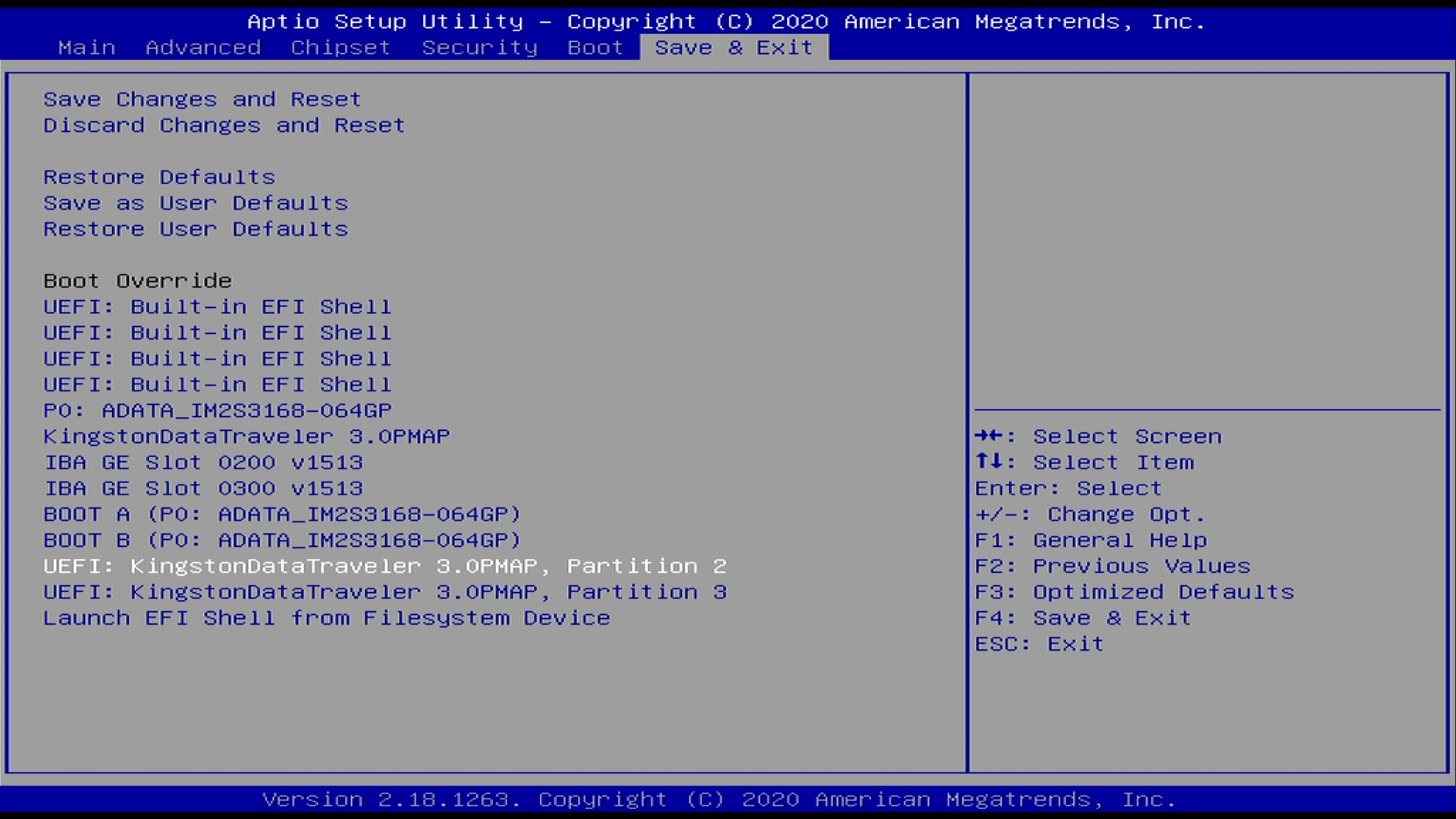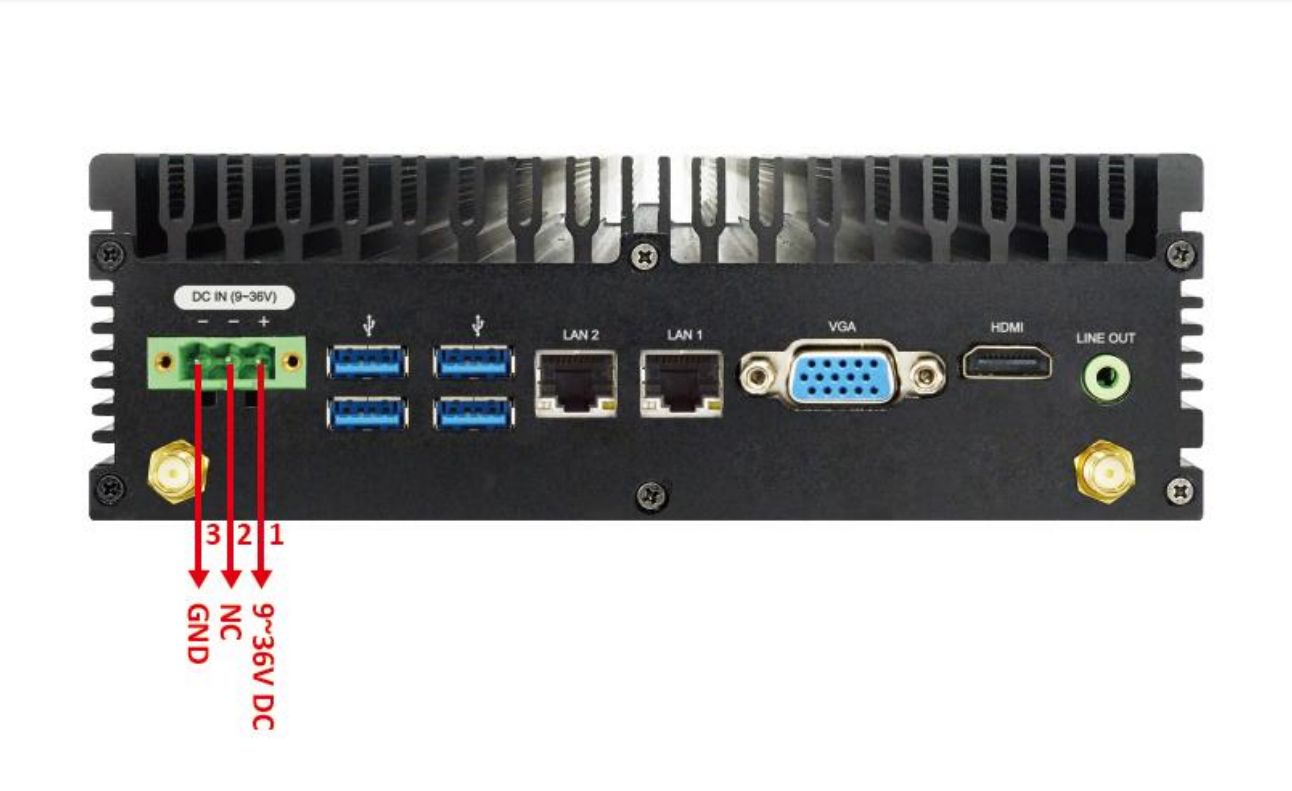Jetway JBC386F951T¶
Board Identification¶
Identifier: JBC386F951T
Yocto MACHINE: hbjc386f951t-x86
Documentation:
Features:
- CPU: Intel Atom x5-E3940 Processor Quad Core
- RAM: 1x 204-pin DDR3L-1866 SO-DIMM
- Storage: 1x M.2 PCIe + SATA M-key
- AMI BIOS v2.18.1263
- Fintek F81966 Embedded Controller
- 2x RJ45 Ethernet
- Wifi/Bluetooth: 1x Installed on Mini-PCIE
- 4x USB ports
- Video & sound:
- Intel HD Graphics 500
- HDMI
- VGA
- 9-36V DC-In Power
- RS485, 16 bit GPIO, 2 Serial Ports
Boot Sequence¶
- The UEFI loads the Comboapp and starts the Kernel
- The kernel mounts the initial ram file system (initramfs) and starts Init
- The Init check the UEFI environment and synchronize the UEFI variables with Bootflags (A reboot may occur in this step to update the UEFI environment)
- The Init mounts the active partitions and runs the init system (systemd)
First Installation¶
- On your PC:
- Install the
.wicfile in the boot device/disk - Plug the peripheral into the target machine
- Install the
Warning
Make sure that the WELMADEV variable is correct before running the
commands, dd will irreversibly override the targeted
device and any data it contains.
-
On the target machine:
- Power on the target machine
- Enter the UEFI menu
-
In the
Save & Exitand select the first partition of your disk (usually displayed with the manufacturer's name). As in the following image:
-
The UEFI will load and execute the selected boot entry
- Welma checks the UEFI environment at each boot, in the case of the first boot, the UEFI environment will be updated and the system will reboot.
- After this boot, UEFI will launch the comboapp contained in the first
partition of the Welma disk (the boot order has been updated).

Changing the boot device¶
It's always possible to start Welma from another device. To do this:
- Plug the new device into the target machine
- In the
Save & Exitand select the first partition of the new disk as in the following image:
Hardware Watchdog¶
The JBC386F951T uses the Fintek F81966 EC as a hardware watchdog.
-
The watchdog must be activated from the UEFI menu (in
Advanced->Super IO Configuration):
-
The watchdog timer is started by the UEFI, so make sure you set a sufficient timeout for the kernel to be started and take over.
- The watchdog is serviced by the kernel during its boot. The default timeout is reset to 1 minute by the kernel driver.
- Once started, systemd takes control of the watchdog.
Appendix¶
Connections¶
-
Power

-
Serial ports (
COM1&COM2) and GPIO